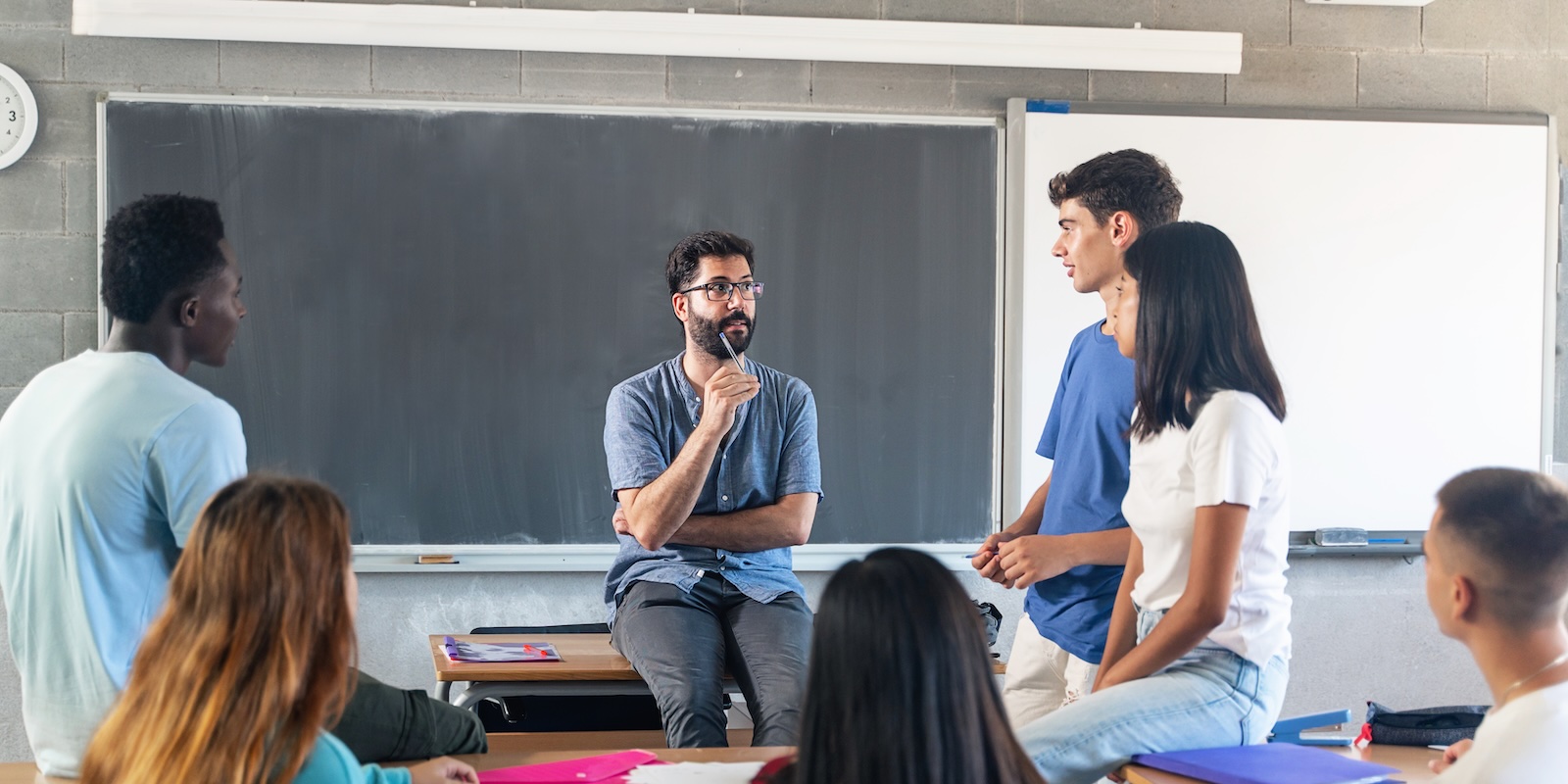PBIS: Finding Good in Every Student

PBIS is about finding the good in every student. A K-12 PBIS coordinator reflects on lessons learned as a teacher that inform her work today.
Classroom management can be challenging for teachers, regardless of their years of experience. No one-size-fits-all strategy can be used in a classroom full of unique students. It is up to the teacher to discover what works best for reinforcing positive behavior (Positive Behavioral Interventions and Supports or PBIS) for each student and often that requires trial and error while forming relationships with each member of the class.
Early in my career as a high school special education teacher, I discovered that the parents of students who teetered on the boundaries of my classroom expectations the most were often aware of their children’s misbehavior. Calling home to report this behavior often had little effect on efforts to bring about positive change. In fact, these same parents tended to avoid my calls. Who wants to hear from a teacher when the only time he or she calls is to deliver bad news about their child? In some cases, the calls even prompted the students to become more defiant. This proved to be an ineffective classroom management strategy. I needed a new approach to establish a positive relationship with my students, regain their trust, and mend the broken bridge of communication with their parents.
In addition to student engagement, two areas of teacher professionalism that are heavily weighted in this era of teacher evaluation include classroom management practices and communication efforts with students' families. Some underutilized yet powerful classroom management strategies that fulfill both of these evaluated areas involve simply recognizing and acknowledging the good in students. When a teacher first notices a student’s efforts to make positive changes to his or her behavior, the teacher can acknowledge the student’s efforts and bring them to the attention of the student and the parent. Research on classroom management reinforces that maintaining a balanced ratio of behavior-specific praise to behavior correction is an effective tool for increasing students’ academic achievement and prosocial behavior. Positive phone calls and notes home can also be game-changing. They build positive relationships with the student and can foster a positive partnership between the parent and teacher.
Students thrive when they are in a safe, trusting, and supportive environment. Acknowledging students’ efforts to choose positive behaviors fosters strong student-teacher relationships within the classroom. This approach cultivates reassurance for a student who is considered an internalizer, one whose emotions are undercontrolled. It can also reinforce positive behavior for a student who is considered an externalizer, one who can’t deal with emotions so directs them outward. Although internalizers are not easily identified, a teacher can seamlessly boost such students’ self-confidence just by practicing positive acknowledgment on a regular basis. On the other hand, a teacher may fulfill an externalizer’s need for attention by acknowledging the good in them whenever possible; this ultimately reinforces more positive behaviors rather than negative behaviors.
Recognizing and acknowledging students’ efforts to improve their behavior gives teachers the opportunity to reach out to parents as the bearers of good news they may not be accustomed to hearing from their school. Such outreach gives teachers leverage to be heard when more pressing issues arise and robust dialogue is needed. Chances are a parent would dodge educators less and actually look forward to engaging in conversation if a favorable communication channel has already been established. Positive interactions facilitate the creation of a productive parent-teacher partnership focused on student success.
When choosing a strategy that recognizes the good in every student, it is vital to know each student’s preferences. Some students will appreciate public acknowledgment in front of their peers and others may prefer one-on-one acknowledgment. Either way, it is important to let the student know that you see their positive efforts and recognize their progress. Certainly, there will be those inevitable days when students regress in their words and actions, but it is by reinforcing every positive step forward that we pave the way for near-term and long-term student success.
Join the Conversation
Are you interested in innovative practices for improving student success, insights from our members, recent news, and engaging webinars? Check out our resources for the latest updates.




